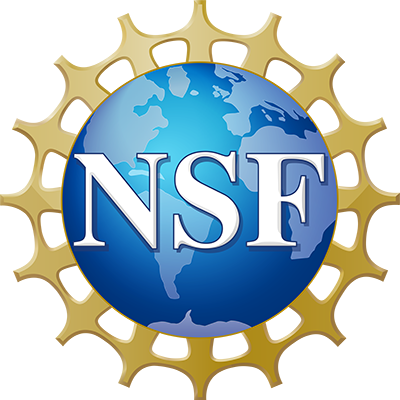Participation Expectations for Aspiring PIs
The goal of this workshop is to provide guidance and feedback for aspiring PIs seeking NSF SaTC funding. To meet these goals, we ask that participants in the workshop engage in a proposal feedback activity that will include both producing a short-form, executive summary of a proposal, and also provide feedback to others executive summaries of the proposals, as part of a mock panel process.
Exectuive Summaries
Participants are expected to submit a Executive Summary of a project proposals by May 1st, 2023. The executive summary (ES), should contain the following information and is expected to be 2-4 pages (not including references). Please ensure your proposal meets the PAPPG standards outlined by then NSF.
Your ES should:
-
Have a title meeting the SaTC title standers (e.g., “SaTC: CORE: Small:…” or “SaTC: EDU:…”);
-
Include a section entitled “Intelectual Merit” where you discuss the intelectual merit of the research;
-
Include a section entitled “Broader Impact” where you discuss the broader impact of the project;
-
Inlude a section entitled “Proposed Research” where you outline proposed research;
-
Include a sectoin entitle “Relevance to SaTC” describing how this project fits within the SaTC program.
We recommend you begin with a short 2-3 paragrpagh summary, followed by details of the proposed research, and conlcude wit the intelectual merit, broader impact, and relevance to SaTC. You may also include any references you feel are appropriate for understanding your project.
Finally, keep in mind that you should write for a somewhat general audience as your proposal will be read by other attendees and mentors at the event. The goal is to receive valuable feedback on framing and structuring a full proposal, and to do that, you should target a reader that has general computer science knowledge, but may not be exactly an expert in your field.
Confidentiality of Proposed Research
By participating in this workshop, we will hold all attendees to a moral code of confidentiality similar to what the NSF expects of panellist. That is, we will ask that all attendees not share any project details with others, and that once feedback is delivered, remove any original documents.
Reviewing Proposals
Just like a NSF panel, you will be asked to provide short reviews for up to five others propoals. Your review should include:
-
A summary of the project;
-
A list of reseaons to fund the project;
-
A list of areas to improve;
-
A summary judgement of the project, for why it should or should not receive funding;
-
A review of Poor, Fair, Good, Very Good, or Excellent.
Each review will be roughly one page and will be assigned on May 4th to be completed that evening. Your reviews will be anonymous and distributed to others after the workshop for feedback.
Panels
Finally, on day 2, May 5th, we will conduct mock panels based on the reviews. The panel will discuss each executive summary and produce a panel summary. The panel summary should include:
-
Summary of the proposal;
-
Strengths and weeknesses of the intelectual merit;
-
Strengths and weeknesses of the broader impact;
-
Areas to improve the proposal;
-
Summary judgement of the proposal;
-
Ranking of Low Copetitive, Competitive, or High Competitive (in comparison to the other proposals reviewe by that panel).
The mock panel will be led by a mentor or NSF program officer. The goal is to both provide feedback to the aspiring PI but also expose aspiring PIs to the review process, a key part of understanding how to write stronger, more competivie proposals.



